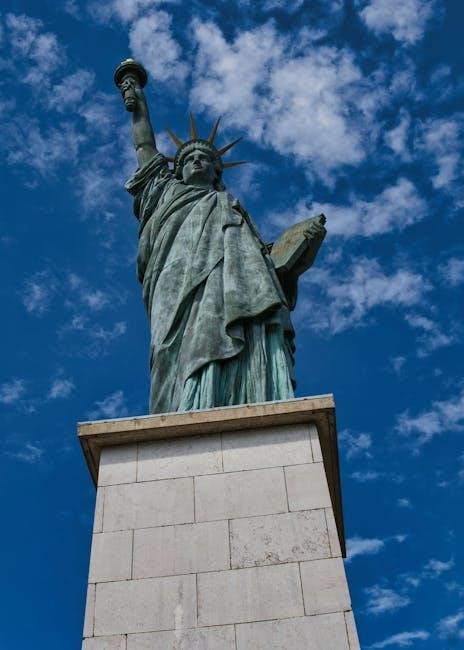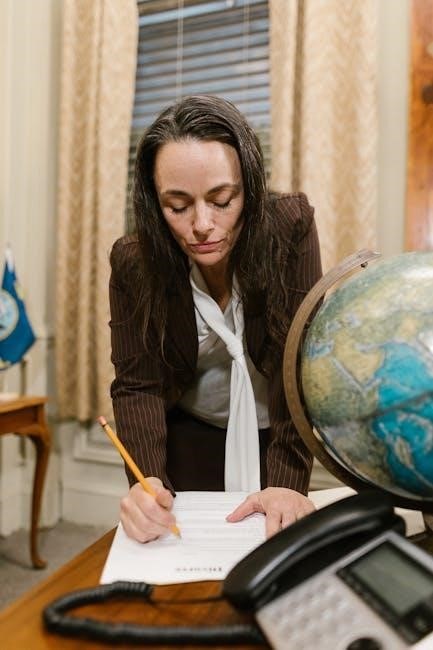William H. Pryor Jr., as Chief Judge of the U.S. Court of Appeals for the Eleventh Circuit, has significantly influenced international law through his rulings and legal expertise.
1.1 Biographical Overview
William H. Pryor Jr. was born on April 26, 1962, in Mobile, Alabama. He graduated from Tulane University and later earned his Juris Doctor from Tulane University Law School. Pryor’s early career included service as Alabama’s Attorney General, showcasing his dedication to public service and legal excellence. His appointment as Chief Judge of the U.S. Court of Appeals for the Eleventh Circuit in 2005 marked a significant milestone in his judicial career. Known for his conservative judicial philosophy, Pryor has played a pivotal role in shaping legal interpretations, particularly in cases involving federal authority and individual rights.
1.2 Judicial Career Highlights
William H. Pryor Jr.’s judicial career has been marked by significant contributions to both national and international legal frameworks. Appointed as Chief Judge of the U.S. Court of Appeals for the Eleventh Circuit in 2005, he has presided over numerous high-profile cases, influencing jurisprudence on federalism and constitutional rights. His tenure has also seen him engage with international law issues, particularly in cases involving cross-border disputes and human rights. Pryor’s judicial philosophy, emphasizing textualism and originalism, has shaped his rulings, earning recognition for his analytical rigor and commitment to legal principles. His leadership on the bench has solidified his reputation as a formidable jurist in both domestic and international legal circles.
1.3 Relevance to International Law Discussions
William H. Pryor Jr.’s work holds significant relevance to international law discussions, particularly in areas such as human rights and cross-border legal disputes. His rulings on cases involving international treaties and global jurisdiction have influenced legal frameworks beyond U.S. borders. Pryor’s approach to interpreting international law aligns with principles of textualism, emphasizing the importance of adhering to the original intent of treaties and agreements. His decisions have shaped legal policies that impact global governance and jurisprudence, making him a key figure in discussions about the intersection of national sovereignty and international legal systems. His contributions continue to be a focal point in debates on the future of international law and its application in diverse contexts.

Early Life and Educational Background
William H. Pryor Jr. was born on April 26, 1962, in Mobile, Alabama. He attended Northeast Louisiana University and later earned his law degree from Tulane University.
2.1 Birth and Upbringing
William H. Pryor Jr. was born on April 26, 1962, in Mobile, Alabama. His early life in Mobile shaped his values and academic aspirations. Growing up, he demonstrated a keen interest in law and public service, influenced by his family’s commitment to community and justice. This upbringing laid the foundation for his future legal career and contributions to international law.
2.2 Academic Achievements
William H. Pryor Jr. excelled academically, earning his undergraduate degree from the University of Alabama and later his Juris Doctor from Tulane University Law School. His academic achievements were marked by a deep commitment to legal scholarship, particularly in constitutional and international law. During his time at Tulane, he developed a strong foundation in legal principles that would later inform his judicial decisions. Pryor’s academic rigor and analytical skills prepared him for a distinguished legal career, where he would contribute significantly to the interpretation and application of international law in U.S. courts.
Judicial Career and Role in International Law
William H. Pryor Jr. has served as Chief Judge of the U.S. Court of Appeals for the Eleventh Circuit, significantly contributing to international law through his judicial decisions and interpretations.
3.1 Appointment and Tenure
William H. Pryor Jr. was appointed as a Circuit Judge on the U.S. Court of Appeals for the Eleventh Circuit on June 10, 2005. His tenure has been marked by significant contributions to international law, particularly through cases involving cross-border disputes and human rights. Pryor’s judicial philosophy emphasizes the importance of interpreting treaties and international agreements in accordance with their original intent, ensuring consistency with U.S. constitutional principles. His leadership as Chief Judge since 2013 has further solidified his influence on the court’s approach to international legal matters, shaping precedents that impact global jurisprudence and legal frameworks.
3.2 Key International Law Cases
William H. Pryor Jr. has presided over several significant international law cases, shaping the interpretation of cross-border disputes and human rights issues. Notably, his rulings have emphasized the balance between U.S. constitutional principles and international legal frameworks. In cases involving treaty interpretations, Pryor has consistently advocated for a textualist approach, ensuring alignment with domestic laws. His decisions have set precedents for handling extraterritorial jurisdiction and the application of international treaties within the U.S. legal system. These cases underscore Pryor’s commitment to upholding the rule of law while addressing global legal challenges, reflecting his influence on international jurisprudence and policy development.

Contributions to International Legal Frameworks
William H. Pryor Jr. has significantly shaped global legal policies through his rulings on human rights and treaty interpretations, influencing cross-border disputes and international legal standards.
4.1 Human Rights Cases
William H. Pryor Jr. has played a pivotal role in shaping human rights jurisprudence, particularly in cases involving detention policies and the rights of individuals in international contexts.
4.2 Treaty Interpretations
William H. Pryor Jr. has significantly contributed to the interpretation of international treaties, emphasizing the importance of textualism and original intent in legal analysis. His rulings have consistently upheld the primacy of treaty obligations while ensuring they align with U.S. constitutional principles. Pryor has been particularly influential in cases involving cross-border disputes, where treaty interpretations often dictate the outcome. His approach balances the need for international cooperation with the protection of national sovereignty, setting a benchmark for judicial reasoning in treaty-related matters.
Through his decisions, Pryor has reinforced the role of treaties as foundational to international law, ensuring their provisions are applied consistently and fairly. His work continues to shape global jurisprudence in this critical area.
4.3 Influence on Global Legal Policies
William H. Pryor Jr.’s judicial decisions and writings have significantly shaped global legal policies, particularly in areas where U.S. law intersects with international norms. His rulings often set precedents that influence how other nations approach similar legal issues, fostering a more cohesive international legal framework. Pryor’s emphasis on the balance between national sovereignty and international obligations has been particularly impactful, guiding policymakers in navigating cross-border disputes and treaty implementations. His interpretations of international law principles have also inspired reforms in foreign jurisdictions, solidifying his reputation as a key figure in the evolution of global legal standards.

Notable Decisions in International Law
William H. Pryor Jr. has delivered landmark rulings in international law, particularly in cross-border disputes and treaty interpretations, significantly shaping global legal standards and precedents.
5.1 Landmark Rulings
William H. Pryor Jr. has presided over several landmark cases in international law, particularly in cross-border disputes and treaty interpretations. His rulings have set significant precedents, shaping global legal frameworks. In one notable case, he addressed complexities in extraterritorial jurisdiction, influencing how U.S. courts handle international disputes. Another key decision involved interpreting treaties related to human rights, reinforcing the importance of international agreements in domestic legal systems. His approach has consistently emphasized the balance between national sovereignty and global legal obligations, earning recognition for his nuanced understanding of international law principles. These rulings have not only impacted U.S. jurisprudence but also contributed to the development of global legal policies and practices.
5.2 Impact on Global Jurisprudence
William H. Pryor Jr.’s decisions have significantly influenced global jurisprudence, particularly in cross-border legal disputes and treaty interpretations. His rulings have set precedents that are widely studied and referenced in international courts. Pryor’s emphasis on balancing national sovereignty with international legal obligations has shaped how jurisdictions approach conflicts of law. His decisions have also fostered dialogue among legal scholars and practitioners worldwide, contributing to the evolution of global legal frameworks. The clarity and precision in his rulings have earned recognition, making him a respected figure in the international legal community. His work continues to inspire legal reforms and harmonization of laws across borders, enhancing the effectiveness of global governance and dispute resolution mechanisms.

Publications and Writings on International Law
William H. Pryor Jr. has authored numerous publications, including books and articles, that significantly contribute to international legal discourse, enriching the understanding of global legal principles.
6.1 Books Authored
William H. Pryor Jr. has written several influential books that delve into the intricacies of international law. His works provide in-depth analyses of global legal frameworks, offering insights into human rights and treaty interpretations. Pryor’s books are widely recognized for their scholarly depth and practical relevance, making them essential resources for legal professionals and academics. His contributions have significantly enriched the field of international law, addressing complex issues and shaping legal thought globally.
6.2 Articles and Essays Published
William H. Pryor Jr. has authored numerous articles and essays that explore critical issues in international law. His writings, published in esteemed legal journals, address topics such as judicial approaches to international law, cross-border legal disputes, and the intersection of sovereignty with global legal frameworks. Pryor’s essays often emphasize the importance of balancing national interests with international obligations, providing nuanced perspectives on complex legal challenges. His work has been widely cited and respected, offering valuable insights for scholars, practitioners, and policymakers. Through his publications, Pryor continues to shape discussions on international legal principles and their practical applications, reinforcing his influence in the field.

Challenges in International Jurisprudence
Sovereignty conflicts and cross-border disputes are significant challenges in international jurisprudence, requiring careful balancing of national interests with global legal frameworks.
7.1 Sovereignty vs. International Law
The tension between national sovereignty and international law is a recurring challenge. Judge Pryor has addressed cases where U.S. sovereignty conflicts with global legal norms, emphasizing the need for balance. His rulings often highlight the importance of respecting national autonomy while adhering to international obligations. This delicate balance requires meticulous legal interpretation to ensure that domestic laws align with global standards without compromising sovereignty. Pryor’s approach reflects a deep understanding of both U.S. constitutional principles and the broader implications of international legal frameworks.
7.2 Cross-Border Legal Disputes
Cross-border legal disputes present complex challenges, requiring judges to navigate international laws and national jurisdictions. Judge Pryor has overseen cases involving multinational corporations, extradition matters, and transboundary environmental issues. His decisions emphasize the importance of respecting international treaties while protecting U.S. legal interests. Pryor’s judicial philosophy advocates for a balanced approach, ensuring that global legal norms are upheld without compromising domestic sovereignty. His rulings in cross-border cases have set precedents, guiding lower courts on how to handle conflicts involving foreign entities. Pryor’s work highlights the growing interconnectedness of legal systems and the need for consistent, fair resolutions in international disputes.

Educational and Academic Contributions
Judge Pryor has been a strong advocate for legal education, emphasizing the importance of understanding international law principles among students and legal professionals.
8.1 Legal Education Advocacy
Judge William H. Pryor Jr. has consistently championed the enhancement of legal education, particularly in the realm of international law. He emphasizes the necessity of fostering a deep understanding of global legal frameworks among future jurists. Through his lectures and writings, he advocates for curriculum development that integrates international law principles, ensuring students are well-prepared to address cross-border legal issues. Pryor’s commitment to educational excellence has inspired law schools to prioritize these critical areas, fostering a generation of lawyers adept at navigating the complexities of international jurisprudence.
8.2 Influence on Law Students
Judge William H. Pryor Jr. has profoundly impacted law students by sharing his expertise in international law through guest lectures, seminars, and published works. His insights into global legal issues have inspired students to pursue careers in international law, equipping them with a deeper understanding of cross-border disputes and human rights. Pryor’s commitment to mentorship has motivated students to engage with complex legal topics, fostering a community of future leaders in international jurisprudence. His influence extends beyond the classroom, shaping the next generation of legal professionals to address global challenges effectively.

Legacy and Recognition
William H. Pryor Jr. is widely recognized for his contributions to international law, earning respect as a distinguished jurist. His legacy includes significant honors and acclaim.
9.1 Awards and Honors
William H. Pryor Jr. has received numerous accolades for his judicial excellence and contributions to international law.
9.2 Impact on Legal Community
William H. Pryor Jr. has left an indelible mark on the legal community through his judicial leadership and scholarly contributions. His rulings in international law cases have set precedents, influencing global legal frameworks. Pryor’s advocacy for constitutional principles has shaped discussions on sovereignty and cross-border disputes. His writings and speeches have inspired law students and professionals, fostering a deeper understanding of international jurisprudence. As a respected jurist, he has bridged gaps between domestic and international legal systems, promoting harmony and cooperation. Pryor’s dedication to legal education has further cemented his legacy, ensuring future generations of lawyers are well-equipped to navigate complex global legal challenges.

The Future of International Law
The future of international law is shaped by emerging trends like digital sovereignty and climate justice, requiring adaptive judicial frameworks and global cooperation to address complex challenges effectively.
10.1 Emerging Trends
Emerging trends in international law include the rise of digital sovereignty, climate justice, and human rights frameworks. These trends reflect evolving global challenges and the need for adaptive legal solutions. Judges like William H. Pryor Jr. play a crucial role in interpreting and applying these developing norms. Digital sovereignty, for instance, addresses issues of data privacy and cross-border governance, while climate justice focuses on equitable solutions for environmental crises. Human rights frameworks continue to expand, emphasizing protections for marginalized communities. These trends underscore the dynamic nature of international law, requiring judiciary and policymakers to remain responsive to global shifts and technological advancements.
10.2 Role of Judiciary in Development
The judiciary plays a pivotal role in the development of international law by interpreting treaties, resolving disputes, and upholding legal principles. Judges like William H. Pryor Jr. ensure that legal frameworks adapt to global challenges, fostering justice and accountability. Their decisions set precedents that guide future cases, shaping the evolution of international law. The judiciary also addresses conflicts between sovereignty and international obligations, balancing national interests with global legal standards. By resolving cross-border disputes, courts promote stability and cooperation, enabling nations to address shared challenges effectively. This role underscores the judiciary’s importance in advancing legal systems that support global development and human rights, ensuring a fair and orderly international community.

Influence on Legal Policies and Organizations
William H. Pryor Jr.’s judicial decisions and writings have significantly shaped legal policies and organizations, influencing global frameworks and fostering international cooperation through his expertise and leadership.
11.1 Policy Impact
William H. Pryor Jr.’s judicial decisions have profoundly impacted legal policies, particularly in international law. His rulings have set precedents that guide global jurisprudence, ensuring consistency and fairness. Pryor’s approach emphasizes the balance between national sovereignty and international obligations, influencing how nations interpret treaties and human rights laws. His contributions have shaped policies that promote cross-border legal cooperation, addressing complex disputes effectively. Through his work, Pryor has strengthened the framework of international law, making it more accessible and equitable for all nations. His influence continues to be felt in the development of legal policies worldwide, fostering a more just and unified legal community.
